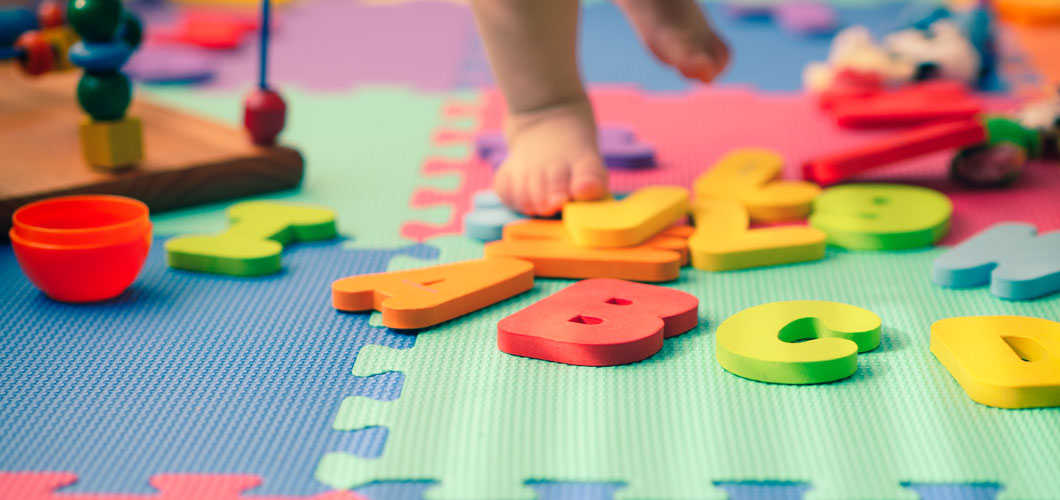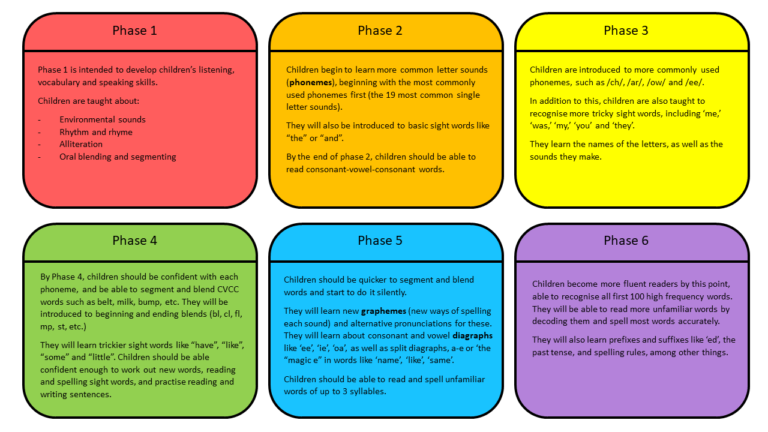
The foundations of literacy begin with Phonics. Phonics helps children learn how to read and spell, by making associations between the sounds they know and the letters and words they are beginning to recognise.
Through alphabet-sound recognition, children are able to decode words they read, and spell them correctly. With a strong foundational understanding of the relationship between letters and sounds, children are able to improve their reading fluency.
Children who are phonologically delayed will have trouble reading, as they are unable to recognize the sounds of the alphabets in the words that they read. When children are able to make use of the rules of phonics to pronounce and read words correctly, they develop more confidence in themselves.
Phonics teaches children to read by linking the sounds they hear (phonemes) and the symbols that represent them (graphemes, or letter groups). Through phonics, children are equipped with the skill of decoding visually unfamiliar words.
Phonics relies heavily on a reader’s phonemic awareness. The reader has to not only understand that words are made up of phonemes but also the number of phonemes in a familiar or unfamiliar word.
There are two basic categories in the sounds of English:
How does your child learn phonics, from letter sounds, to full words? We explain the series of phases that your child will go through in their journey to master phonics.

Building Phonemic Awareness
Tele-consultation (within Singapore)
|
10 minute Consultation |
General Paediatrics Case |
Sub Specialty Case |
|
1st Consult |
$90 |
$120 |
|
Follow up |
$50 |
$80 |
Additional charges may apply for extended consultation with the doctor.
Delivery of Medication (within Singapore):
Orchard Road – $2, Tuas – $4, Sentosa and Airport – $10
*Tele-consultation (outside of Singapore) is only applicable for Sub Specialty Follow up.
Thank you for choosing SBCC's Tele-Consultation service. At SBCC, we strive to provide you with a seamless and effective healthcare experience. Our Tele-consultation service is different than other providers as we can schedule a tele-consult with your preferred paediatrician through our Platform.
Please go through the below terms and conditions for our Tele-Consultation process including your rights and responsibilities of this platform. These Terms and conditions, together with our privacy policy constitute an agreement between you and Healthway Medical group.
In the current COVID-19 situation, parents may be hesitant to bring their little one to clinics. With this tele-consultation service, you may consult a paediatrician on non-urgent clinical matters without leaving your home.
FOLLOW-UP for stable chronic conditions such as asthma, allergic rhinitis, food allergy, eczema, constipation, juvenile arthritis, chronic urticaria
If your child is experiencing a medical emergency, please call an ambulance at 995 or make your way to the nearest Accident & Emergency department immediately. If it is not an emergency, but you/your child do not meet the requirement for telemedicine please call our clinics for an appointment. If you need mental health support, please call SOS Hotline (1800-221 4444).
1. Fill in the online registration form and make an appointment with your preferred paediatrician.
2. Complete the payment details before submitting the online registration form.
3. You will receive an SMS and Email to confirm your registration.
4. As the tele-consult request needs to be approved by the paediatrician, you will receive an SMS and Email confirming your request.
5. You will receive a video consultation link by SMS and Email when your appointment is near.
6. Click the link to start your consultation.
7. Once complete, you will receive a link by SMS and Email on the amount payable to the clinic.
8. If you have selected delivery of medication, a delivery fee will apply to your final bill amount.
A standard delivery fee of $15.00 will be charged for medication delivery within Singapore. You will receive your medication within 3 hours.
Please note the following surcharges apply to the following area:
Your medication will be delivered to your address via a courier.
At the time of registration, we charge an amount of $1 to authenticate your credit card. However, please note that this amount is immediately reversed once your request is submitted successfully.
Payment is made via your submitted credit card details at the time of registration.
| Doctor Name | Doctor Specialty (Special Interest) |
| Dr Alison Joanne Lee | Paediatric Medicine (Allergy & Immunology) |
| Dr Chan Kit Yee | Paediatric Medicine (Cardiology) |
| Dr Charmaine Teo | Paediatric Medicine |
| Dr Jenny Tang | Paediatric Medicine (Asthma, Lung, Sleep & Allergy) |
| Dr Martha Liu | Paediatric Medicine |
| Dr Nancy Tan | Paediatric Medicine (Gastroenterology, Hepatology & Nutrition) |
| Dr Natalie Epton | Paediatric Medicine (Neonatology) |
| Dr Ratna Sridjaja | Paediatric Medicine |
| Dr Wong Chin Khoon | Paediatric Medicine |
| Dr Ng Ying Woo | Obstetrics & Gynaecology* |